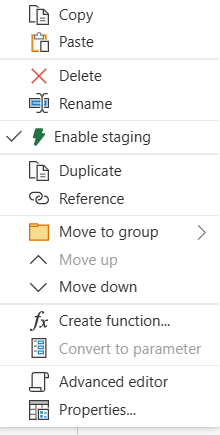High Concurrency Mode for Notebooks
With this neat update, you can run multiple Notebooks in the same Spark compute, allowing Notebooks to kick off without warm-up time or allocating new compute. You pay once (as much as you use it) and run many things on it before it's deallocated. Benefits:
- Up to x30 performance gain on Notebook startup
- Notebooks still run isolation, don't affect each other
- Do more, pay less
When to use it? If you have multiple notebooks that need to run simultaneously due to how they were configured or due to scheduling, it makes sense to have them run together. You'll end up paying less and gain more performance.
XMLA Write support for Direct Lake datasets
This is the crown of this month's update.
Known for being the Analysis Services protocol, XMLA gives you the power to connect your Power BI datasets using compatible tooling. Until now, the Direct Lake Datasets in Fabric were read-only, but now they gain the full power of reading and writing. Now, you can model your DL Datasets better and deploy them into your workspace, then consume the model from Power BI using Direct Lake connectivity.
This will let you:
- Connect to your Direct Lake Dataset via SQL Server Management Studio, DAX Studio, Tabular Editor, etc.
- Model your DL Dataset efficiently with better tooling when Fabric's tooling doesn't cut it
- Perform operations: Deploying, Customising, Merging, Scripting, Debugging, and Testing
- Deploy your tabular models to your workspace
Publish dataflow without staged queries
Since the launch of Fabric, there have been a lot of tweets around queries with low performance. One particular reason is the Staging capability, which isn't necessary for every query but comes enabled by default. Now, you have the option to disable Staging in your Dataflows.
You need at least a single query with a destination in your Dataflow Gen2 to disable Staging.

KQL Database support for inline Python
Fabric's KQL Database supports the Python () plugin, allowing users to seamlessly embed Python code within their Kusto Query Language (KQL) queries. This feature operates in a secure sandbox environment on KQL Database compute nodes, providing isolation and security. The plugin extends KQL's native capabilities by offering various open-source packages, enabling advanced tasks like machine learning and statistical analysis directly within KQL queries. To utilise this functionality, users need to manually enable the Python plugin in their KQL Database settings by toggling it in the "Manage" -> "Plugins" section.
Bonus: Multitasking navigation improvement
The navigation experience for Fabric components on the UI improved in August, especially becoming resistant to page reloads. Although this is a relief, I'm not too fond of the Power BI's inherited user interface and navigation. It'll make it easier to bear :)

